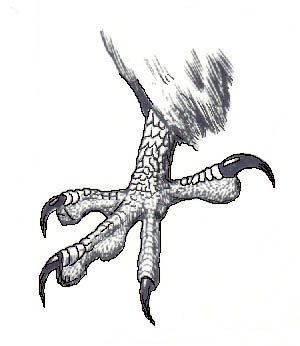Glenn Karisch’s Texas Probate Resources
Welcome to the Texas Probate Resources website, your source for information on estate planning, probate, and trust law in Texas. This site is owned and maintained by Glenn Karisch of Karisch Jonas Law, PLLC, in Austin, Texas. For information dating from before February 1, 2011, visit the legacy site at texasprobate.net.
Texas Probate
x-Did Not Pass: HB 1837 -- REPTL guardianship bill

Caption: Relating to guardianships and alternatives to guardianship for persons who have physical disabilities or who are incapacitated.
Author: Hartnett
Relevance: This bill is supported by the Real Estate, Probate and Trust Law Section of the State Bar of Texas. It makes multiple changes to the guardianship statutes in the Texas Probate Code. These include:
Changing the guardianship jurisdiction statutes in a way that is consistent to 2009's changes to the decedents' estates jurisdiction statutes. This is related to the enactment of the new Estates Code. (Sections 601, 605, 606A, 607A, 607B, 607C, 607D, 607E, and other technical changes)
Clarifies that an attorney ad litem appointed in a temporary guardianship continues to serve until a permanent guardian is appointed or the guardianship application is denied. (Section 646)
Eliminates the 5% of income and 5% of disbursement method of determining guardianship compensation in favor of a "reasonable compensation" standard. (Section 665)
Makes it easier for the conservator of an adult disabled child to obtain a guardianship of that child. (Section 682A)
Fixes some technical problems caused by 2009 changes to the physician's certificate requirements for guardianships. (Section 687)
Eliminates the need to list other co-owners of property on guardianship inventories. (Sections 729 and 730)
Clarifies that a guardianship of the estate shall be settled when all of the guardianship assets are transferred to a pooled trust subaccount. (Section 745)
In the settlement of a guardianship estate, the attorney ad litem's fees may be taxed as costs instead of automatically coming from the ward's estate. (Section 745)
Changes the maximum age for a guardian of a person to "voluntarily" admit the ward to an inpatient psychiatric facility from 16 to 18. (Section 770)
Makes it possible to apply to the court for permission to transfer a portion of the ward's estate "as necessary to qualify the ward for government benefits." (Section 865)
Permits a person with a physical disability only to apply for creation of a guardianship management trust (which may be necessary to qualify for governmental benefits). (Sections 867, 868, 868C, 869 and 870) The court cannot require the trustee of a trust created for a person with a physical disability only to file annual or final accountings. (Sections 871 and 873)
Requires the trustee of a guardianship management trust to file an "initial accounting" (the equivalent of an inventory) within 30 days after the date a trustee receives property. (Section 870A
Clarifies who can apply for the establishment of a pooled trust subaccount and who is eligible for a pooled trust subaccount. (Sections 910 and 911)
See "REPTL bills would make changes to trusts, guardianships and powers of attorney" on texasprobate.com.
x-Did Not Pass: HB 1813 -- Unvested contingent beneficiary is still a trust beneficiary
Caption: Relating to a beneficiary or interested person for the purposes of the Texas Trust Code.
Author: Phillips
Bill History
Bill Text
Relevance: HB 1813 would change the definitions of "beneficiary" and "interested person" in Section 111.004 of the Trust Code to specifically include a beneficiary "whose right to benefit from the trust is contingent, regardless of whether the right to benefit from the trust is presently vested." This language may be unnecessary, since the definition of beneficiary now in the Code means "a person for whose benefit property is held in trust, regardless of the nature of the interest." It may have an impact on the right of remote beneficiaries to demand accountings and participate in litigation, although that is not clear.
Bill may codify "fraud on the community," at least in divorces
Senfronia Thompson, Author of HB 908
Rep. Senfronia Thompson (D-Houston) filed HB 908, which would add Section 7.009 to the Texas Family Code to define "fraud on the community" and require courts hearing suits for dissolution of a marriage to factor it into property divisions. Even though it appears to apply only to suits for dissolution of a marriage, the bill interests probate lawyers because the concepts may bleed over into decedents' estates.
Currently "fraud on the community" is an equitable concept developed in case law. HB 908 defines fraud on the community to mean "improper conduct by a spouse to the detriment of the community estate." It specifically includes a spouse "wrongfully conveying property out of the community estate," "wasting community funds or property" and "failing to provide an accounting of money transferred from the community estate."
This would broadly define the concept, at least as it applies in divorce cases. The bill provides that, before dividing the community estate in a divorce, the trier of fact must determine whether a spouse has committed fraud on the community. It would appear to require this determination even if no one alleges fraud on the community.
Chris Harris, Author of SB 817
If the trier of fact determines that a spouse has committed fraud on the community, the court is required to calculate the value by which the community estate was depleted as a result of the fraud on the community, determine the amount of the "reconstituted estate" (defined to mean the total amount of money that would have been in the community estate if the fraud on the community had not occurred), divide the value of the reconstituted estate between the parties, and award to the spouse that committed fraud on the community that portion of the estate that the spouse depleted.
The bill says it applies to pending and future divorce cases. However, the existence of the statute -- particularly the definition -- might influence fraud on the community claims in probate estates.
The bill has not yet been referred to committee.
Update: Sen. Chris Harris (R-Arlington) has filed SB 817, which is the companion bill to HB 908.
x-Did Not Pass: SB 817 -- Fraud on the community in divorce cases
Caption: Relating to the division of community property on dissolution of marriage.
Author: Harris
Bill History
Bill Text
Note: While SB 817 did not pass, its companion, HB 908 passed both houses and, as of May 19, 2011, was awaiting Governor Perry's signature.
Relevance: This bill applies only to suits for dissolution of a marriage. It defines "fraud on the community" and requires the court to determine if a spouse has committed fraud on the community. If the court finds that a spouse has committed fraud on the community, it is required to calculate the "reconstituted" community estate and divide the reconstituted estate based on the fraud.
See "Bill may codify 'fraud on the community,' at least in divorces" on texasprobate.com.
Michael Jackson's estate is working its way out of debt
Although singer Michael Jackson was more than $400 million in debt when he died, his executors report that his estate has generated more than $310 million since his death and that they have used $159 million to pay down the debt, according to a story in TheChristian Science Monitor.
The information comes from an accounting filed by executors John Branca and John McClain reporting transactions through December 31, 2010. The Monitor quotes from the accounting: "Although there remain unresolved creditor claims, pending litigation and additional challenging business, tax and legal issues, and the estate is not yet in a condition to be closed, the executors have made substantial progress in reducing the estate's debt."
To see the docket sheet for this complex probate proceeding, go to the probate court's web site, click on the "Case Summary" link in the left column, and then enter "BP117321" in the Case Number field. To see Michael Jackson's 5-page will, click here.
Enacted-Effective 9/1/11: SB 748 -- Effect of death or divorce on LLC interests
Caption: Relating to business entities and associations.
Author: Carona
Bill History
Bill Text
Relevance: This bill enacts new Section 101.1115 of the Business Organizations Code to provide that, upon the death of a member or a member's spouse or on the divorce of a member, the person receiving an ownership interest in an limited liability company is only an assignee, not a full member. Assignees are entitled to economic benefits but not voting rights.
Steve Akers' Heckerling Musings (2011)
Steve Akers of Bessemer Trust has published his summary of discussions and presentations at the 45th Annual Philip E. Heckerling Institute on Estate Planning held in January 2011. It is hard to imagine anyone more qualified to report on such an event than Steve. The 96-page paper goes beyond a mere summary to include general discussions of the Tax Relief, Unemployment Insurance Authorization, and Job Creation Act of 2010 and its implications on estate planning.
Steve's summary is available here and on Bessemer's website.
Among the many topics covered is the possible clawback tax on gifts made in 2011 and 2012 if the tax-free amount is reduced in later years. Steve also summarizes the planning suggestions of prominent tax practitioners as well as their predictions about what will happen in 2012.
Enacted-Effective 9/1/11: SB 481 -- Removal/reinstatement of guardian
Caption: Relating to the removal of a guardian of an incapacitated person ordered by a court.
Author: Harris
Bill History
Bill Text
Relevance: Requires notice to a removed guardian and a hearing on an application for reinstatement as guaridian within 60 days of the date of removal.
Two-year window for making gifts -- use it or lose it?
The Tax Relief, Unemployment Insurance Reauthorization, and Job Creation Act of 2010 signed into law on December 17, 2011, creates an unprecedented opportunity for wealthy individuals to make tax-motivated gifts -- but only in 2011 and 2012. Individuals may give up to $5 million to loved ones (married couples may give up to $10 million) without having to pay gift tax. Prior to 2011, the most that could be given was $1 million ($2 million for married couples). While the law permitting gifts at this level may be extended beyond 2012, as things stand now the limit will revert back to $1 million in 2013.
Tax-free transfer amounts have never been this high
The lifetime tax-free amount for estate and generation-skipping (GST) purposes grew steadily from near $1 million in 2001 to $3.5 million in 2009. During that same span, however, the lifetime tax-free amount for gift taxes was stuck at $1 million.
Because Congress failed to act in 2009 to extend the estate tax, Americans experienced a year of uncertainty in 2010. In theory, there was no estate or GST tax in 2010, but there was the threat of retroactive imposition of the tax. There was no uncertainty about the gift tax in 2010 -- the tax-free limit stayed at $1 million.
The 2010 tax law reinstated the estate and GST tax for two years and set the lifetime tax-free amounts at $5 million. This was unexpected, but at least had been discussed as a possibility. What was completely unexpected was that the gift tax tax-free amount also would be bumped to $5 million. The gift, estate and GST tax-free amounts have not been "unified" this century.
Transfer tax rates have never been this low
The 2010 tax law also set the rate for the estate, gift and GST tax for 2011 and 2012 at 35%. Rates have not been that low since the implementation of the current estate and gift tax scheme in 1981. In 2001, taxes were based on a sliding rate schedule which topped out at 55%. The rate was gradually reduced to 45% in 2007 - 2009. If Congress does nothing to change the law, the maximum rate will jump back to 55% in 2013.
What will happen in 2013?
Unless Congress changes the law, in 2013 the gift tax, estate tax and GST tax-free amounts will fall from these unprecedented levels to $1 million (or approximately $1,100,000 for the GST). No one knows if Congress will extend the $5 million tax-free amount. Many observers think it will be difficult politically for Congress to reduce the tax-free amount, so they speculate that we will never see tax-free amounts of less than $5 million. However, most of these same observers were wrong when they predicted that Congress would act in 2009 to prevent a one-year repeal of the estate tax.
The smartest course may be to act now
Since the lower tax-free amounts and the higher rates may return in 2013, the wisest course for persons who can afford it is to make gifts of up to the tax-free amount in 2011 or 2012. The advantages include:
The ability to take advantage of the high gift tax exemption amount while it is available.
The ability to get not only the amount of the gift out of the donor's estate but also the appreciation on the property that is given between the date of the gift and the date of the donor's death.
Gifts may be made outright or in trust.
Gifts of illiquid assets, such as undivided interests and real property or limited partnership interests, may be given.
The effectiveness of the gift may be enhanced if it is made to a trust which is treated as a "grantor trust" for income tax purposes.
Possible concerns are:
As always, donors should not give away assets which they may need for their own use and support.
In order to be effective, the donor must give up control and use of the property. While some restrictions may be placed on the use of the property by others, the gift must be irrevocable and complete.
The gifts must be made while the current law is in place (in 2011 or 2012).
There is some risk of a "claw-back" tax being imposed at the donor's death. The claw-back tax will be the subject of a separate post on texasprobate.com. While most observers think this is unlikely, many of the benefits of the gift will be achieved even if it happens. Donors should understand this risk before making gifts under the new law.
A gift tax return must be filed and some or all of the donor's lifetime gift tax exemption will be used.
The complexity of the new law and the dollars involved -- both the dollar amount of the gifts and the dollar amount of the taxes at stake -- mean that donors should consult with qualified estate planning counsel before acting. For more information, contact Glenn Karisch.
x-Did Not Pass: HB 1325 -- Ad litem fees in guardianships
Caption: Relating to payment of the costs for services of a guardian ad litem and attorney ad litem in a guardianship proceeding.
Author: Hartnett
Bill History
Bill Text
Relevance: This bill would permit the court to order the applicant to pay ad litem fees, but only if the proposed ward's assets are insufficient.
See "Ad litem fees and attorneys' fees in guardianships: who pays?" on texasprobate.com.
Will there be a claw-back tax?
Congress and President Obama gave wealthy Americans a gift when they enacted the Tax Relief, Unemployment Insurance Reauthorization, and Job Creation Act of 2010 -- in 2011 and 2012, gifts of up to $5 million may be made without paying gift tax.
This is a great opportunity for giving, and estate planning professionals are nearly unanimous in encouraging clients who have sufficient means to take advantage of the high lifetime gift tax exemption amount. Still, there's a slight reluctance to embrace the strategy -- the possibility of a "claw-back" tax.
The claw-back
Gifts of up to $5 million in 2011 or 2012 may incur no gift tax. What happens, though, if the tax-free amount is less than $3 million when the donor dies?
When preparing the Form 706 -- Federal Estate Tax Return, prior taxable gifts are taken into account -- "brought back into the estate" -- at the date-of-gift value for purposes of calculating the estate tax amount. Since the Form 706 will incorporate the tax-free amount in effect on the date of death, if that tax-free amount is less than the amount of the prior gifts, the donor's estate may be liable for estate tax on the value of the previously-tax-free gifts -- those gifts may be "clawed back" into the estate.
It is not likely to happen...
Most observers believe the claw-back will not happen. Some point to the obvious public policy concerns raised by such a tax. It seems inequitable for taxpayers to make gifts in reliance on the current tax law and to later be subject to tax because those laws change.
Others point to Section 304 of the 2010 tax law, which says that Section 901 of the Economic Growth and Tax Relief Reconciliation Act of 2001 applies to the estate and gift tax amendments made by the 2010 act. Section 901 of EGTRRA says that, once the act has ceased to apply, the Internal Revenue Code shall be applied and administered as if the provisions and amendments of that act "had never been enacted." Writing on the ACTEC-PRAC mailing list, Dan Evans of Philadelphia says he reads this to mean that the gift tax payable under Section 2001(b)(2) of the Internal Revenue Code would be calculated in 2013 based on a unified credit of $345,800, because that's the only credit that would have ever existed, and in that case, any estate tax on lifetime gifts in excess of $1 million disappears. Dan's full article on the claw back is available at www.leimbergservices.com (subscription required).
...But what if it does?
If the claw-back happens, the donor's estate still is likely to have benefited from the gifts made in 2011 and 2012. The claw-back would be at the amount of the taxable gift, not the current value of the property given away. Therefore, the appreciation on the property given will not be taxed. If the gift had not been made, the amount of the gift plus appreciation would be subject to tax.
Here's an example: Donor makes a $5 million gift in 2011, files the required gift tax return and pays no gift tax. Donor dies in 2015. At the time of Donor's death, the property given in 2011 has appreciated in value to $8 million. If the amount of the estate tax exemption for persons dying in 2015 is $1 million, then the gift may be clawed back into the estate at the $5 million amount, meaning that estate tax would be due on the $4 million that is in excess of the 2015 tax-free amount. The $3 million of appreciation is not taxed. If Donor had not made the gift, the full $8 million would be included in Donor's estate.
Fear the claw, but give anyway
What should donors do in light of the possible claw-back? In most cases, they should make gifts as if the claw-back was not a possibility. Donors should be made aware of the risk, but they types of donors making gifts of this size are very likely to benefit from giving even if the claw-back occurs.
Enacted-Effective 9/1/11: SB 587 -- AG actions involving charitable trusts
Caption: Relating to jurisdiction in certain proceedings brought by the attorney general with respect to charitable trusts.
Author: Uresti
Bill History
Bill Text
Relevance: Gives the statutory probate court of Travis County concurrent jurisdiction with another court exercising probate jurisdiction under Probate Code Section 4A in a proceeding brought by the attorney general alleging breach of fiduciary duty with respect to a charitable trust.
x-Did Not Pass: HB 1209 -- Filing fees for families of first responders
Caption: Relating to a probate fee exemption for estates of certain law enforcement officers, firefighters, and others killed in the line of duty.
Author: Taylor of Galveston
Bill History
Bill Text
Relevance: Eliminates probate filing fees for police officers and firefighters killed in the line of duty.
The companion bill, SB 543, passed and is awaiting the governor's signature.







